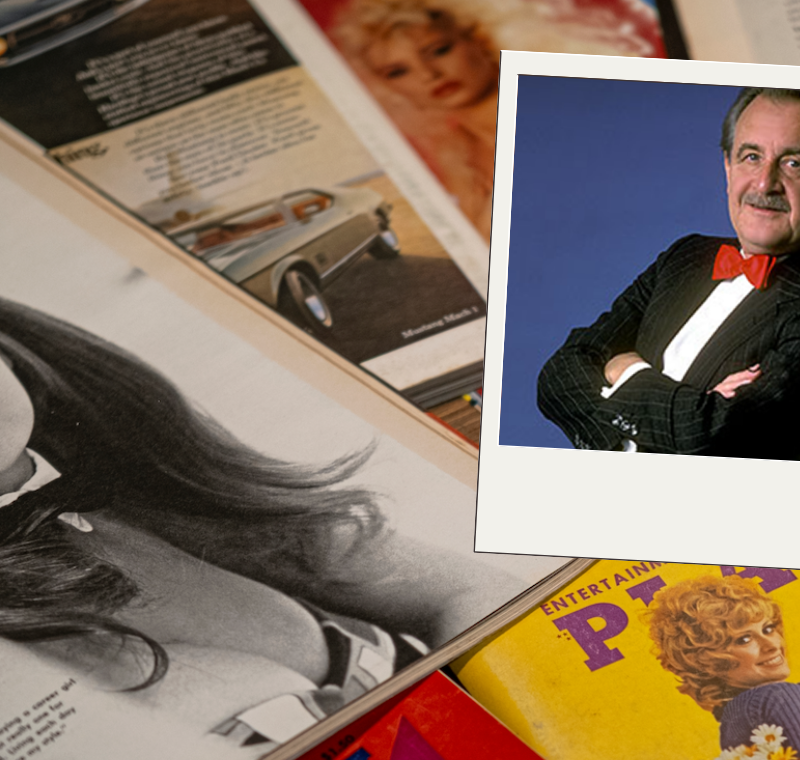From our archive: What makes you so special?

Every year at this time a cadre of college students and recent graduates descends upon companies like ours, trying to get a feel for what life is like inside of a business. For those lucky enough to get this gig, a good internship offers a dose of much needed “real-world experience.”
It works out well for us, by the way, because it turns out that their fake-world experience is exactly what our real world craves. These young adults come pre-loaded with mad social media skills and computer capabilities that our businesses will undoubtedly need to survive.
But making the leap from internship to career path is another thing altogether.
For a tiny few, there may still be some steady careers in law (maybe) and medicine (maybe not). For scores of others, finding a satisfying career will likely be a bumpy ride – one filled with anxiety and uncertainty as automation decimates whole areas of work while simultaneously creating entirely new fields overnight.
Just getting started can be tough. Right now, about 8.5 per cent of recent college graduates are unemployed, and the underemployment rate is around 16.8 per cent. And we all know that this has been a protracted jobless recovery – part of a trend towards longer periods of slow job growth after the business cycle turns sour, as this graph from an article by Clay Christensen and Derek Van Bever in the Harvard Business Review shows:

Playing to win
But there’s a path beyond the scary job statistics. Finding a fruitful and meaningful career after college means having a strategy. Learning to think like a corporate strategist helps. Let me explain why.
Almost all corporate strategy is derived from the work of Michael Porter, the Harvard Business School professor who gave the world Five Forces, a way of thinking about a company’s competitive position in any given market. The key to corporate strategy is in making hard choices that add up to your competitive advantage.
One of the best ways to think about how to make effective choices comes from Playing to Win, the best-selling book by Roger Martin, Dean Emeritus of the University of Toronto’s Rotman School of Management, and A.G. Lafley, CEO of Proctor & Gamble, which was published by The HBR Group in 2013. (If you want a quick primer about the book, replay our webinar with Roger Martin.)
The basic concept is that companies can frame their strategy in terms of where to play and how to win. The word “winning” is important. As Martin and Lafley explain, this isn’t about playing around or “playing to play.” It’s about winning. But winning is in the eye of the beholder. How a company defines what it means to win is the key to creating a winning strategy. More on this point in a moment.
The authors represent their framework as such:

While this framework is meant for corporations that need to make hard choices about where they will spend their precious resources, there’s no saying that it can’t apply to a young individual thinking about their career in media—or any other industry. I recently spoke to Martin about this, and he agrees:
“While I haven’t written about Playing To Win at the individual level, I often talk about it in answer to the frequent questions that I get on whether this is just for the highest level in the organisation or if it applies at lower levels too. ‘Indeed,’ I respond. There are nested cascades all the way to the bottom of the organisation. In fact, everybody has their own personal cascade.”
What does it mean to win?
To get to your own notion of winning, you need to define your purpose. This might be the toughest part. Many of us will spend a lifetime trying to answer this question—what’s our real purpose, who knows? So it might seem like a tall order to know your purpose in life before you’ve even left college. Is it to lead, to follow, to learn, to teach, to entertain…? But if Aristotle is any guide, youth may be the perfect time to set down your lofty goals.
In Culture and Anarchy, Mathew Arnold, the 19th century poet and cultural critic, quoted Aristotle’s Ethics as saying “that those for whom ideas and the pursuit of the intelligible law of things can have much attraction, are principally the young, filled with generous spirit and with a passion for perfection; but the mass of mankind, he says, follow seeming goods for real, bestowing hardly a thought upon true sweetness and light…”
This might just be the ancient version of “stay hungry, stay foolish.” Nevertheless, the point is that you may already have an ideal version of what a meaningful career looks like in your head. Refine it. Set it down on paper. This can become your motivating purpose or what Lafley and Martin would call your “winning aspiration.”
Try to think big (hence aspirational), but specific. In their book, Martin and Lafley use a few examples to stir your thinking, including Nike’s mission statement: “To bring inspiration and innovation to every athlete in the world.” Or Starbucks’: “To inspire and nurture the human spirit—one person, one cup, and one neighbourhood at a time.”
The authors also suggest that companies think in terms of “people rather than money.” For the individual, you might start by defining who you want to serve, change, help, or impact, rather than how much you want to get paid. Do you want to work with children? Do you want to serve the masses or a particular niche?
In my conversations with Martin about applying this framework at the individual level, he makes a compelling case for why it’s so important to make your career choices explicit:
“Even if the person doesn’t think about it at all, they have a personal WTP/HTW [Where to Play/How to Win] – what they spend their time on and how they do it. Remember: strategy is what you actually do not what you claim you are doing. If their WTP/HTW choice is explicit and inspired, they will succeed. If it is implicit and/or not particularly thoughtful, they will probably do fine, but never exceptionally.”
Write it down
There’s much more about the theory that can be applied to an individual as easily as it fits for a corporation. I’ll follow up with more thoughts in subsequent columns, but for now I’ll leave you with a couple of key points.
If you try this approach, be sure to write down your ideas – use the boxes if it helps. Your definitions about where you want to play and how you want to win are just a theory. Once you become employed, you’ll be testing your hypothesis almost immediately; writing down your thoughts ensures that you won’t course correct in your mind and distort how and why events actually evolved.
All strategy is iterative—meaning that you can refine your approach as you get more empirical data about what you like, what you are good at, and so forth. But you need to keep an eye on what’s truly important to you if you are going to achieve a meaningful career.
You may find that your aspirations stay constant, but the path forward emerges over time. That’s fine. That’s life. But if you don’t keep your winning aspirations front and centre, you’ll be surprised at how quickly they can fade away with the summer sun.
Good Luck!
More like this
Harvard Business Review exec: “Be obsessed with the user”
What can publishers learn from the airline industry?
Three digital publishing lessons from nine years at HBR
More like this
How Harvard Business Review approaches innovation and future development
Harvard Business Review editor on Africa, Apple and why the rules of business matter
[Congress speaker Q&A] How Harvard Business Review is embracing the future









